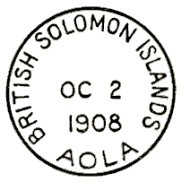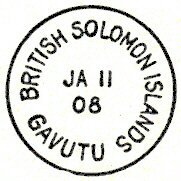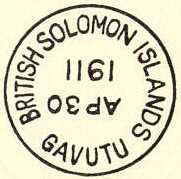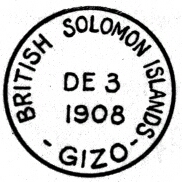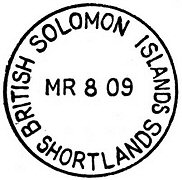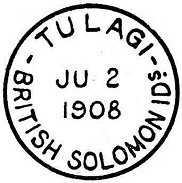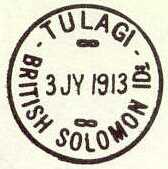 |
Post Offices, Cancellations, and Usage |  |
| While the Small Canoe Issue was in use, post offices existed at Aola, Gavutu, Gizo, Shortland Islands, and Tulagi. At this time, the Protectorate possessed almost no roads, and few settlements of any size. The post offices served the white settlers mostly at trading stations and plantations. Almost all mail was delivered by sea. The information on the post offices and cancellations below is taken from Gisburn, Vernon and the South Pacific Handbook. | |||
|
Diameter = 28 mm |
Aola, 37 miles east of Honiara, the current capitol of the Solomon Islands, was the capitol of Guadalcanal prior to World War II. Charles Woodford lived on Mbara Island, just off the coast of Aola in 1885 and 1886. A post office was opened there in 1908. | ||
|
|
|||
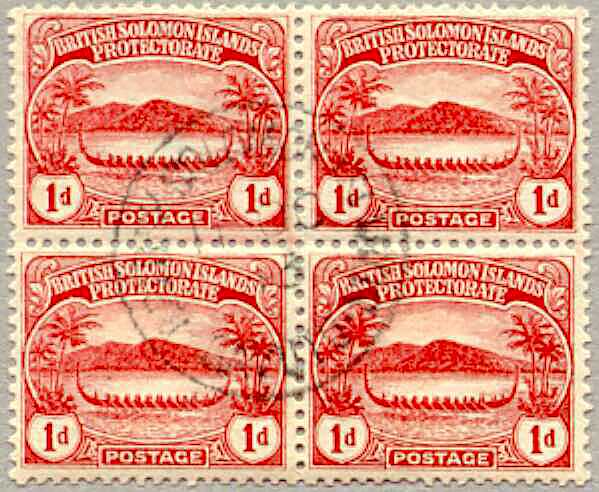 |
|||
|
Gavutu is a small island two miles south of Tulagi off the southern coast of Florida Island. During World War II, the Navy built a seaplane base there and the good concrete wharf remains to this day. The island was the headquarters of Levers Pacific Plantations Ltd. |
|||
|
Diameter = 25 mm |
Gizo, on the island of the same name, is in the New Georgia Group. It has been the administrative center of the Western Solomons since 1899, and is now the country's second largest city , behind Honiara. A post office was opened there in January 1908. | ||
|
Diameter = ~ 30 mm Various Date Configurations exist in addition to that shown, including YY/MM/D, as in the example at the right. |
The Shortland Islands were ceded to Britain from Germany in 1899, and are closer to Papua New Guinea than to the rest of the Solomon Islands. The post office in the Shortlands opened in July 1908. | ||
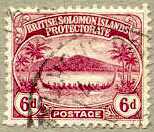 |
|||
|
|
|||
|
As described in Woodford and the First Issue, Tulagi was the first capitol of the Solomon Islands. It was also the center of the postal system and the first post office in the Protectorate. |
|||
 |
|||
|
Picture postcards from this early period are relatively uncommon. The item below, posted in 1912, shows an unidentified village scene--possibly Tulagi. |
|||
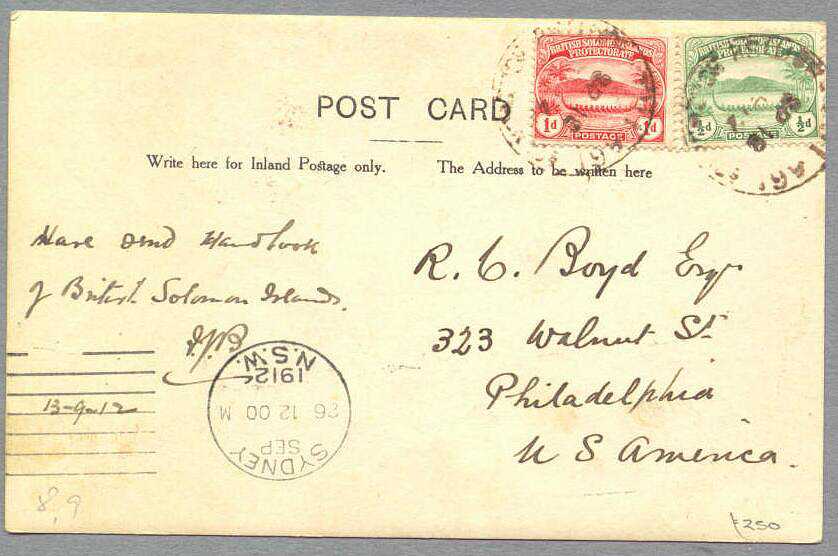 |
|||
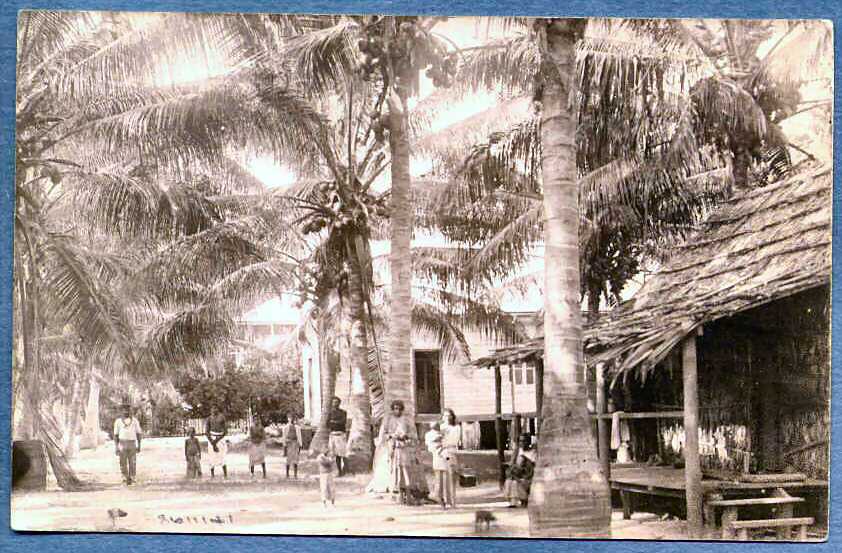 |
|||
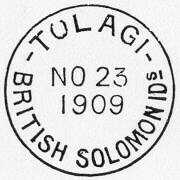 |
Collectors should beware of the cancel shown at the left. It is one of the four forgeries produced by the infamous Madame Joseph. |
||
